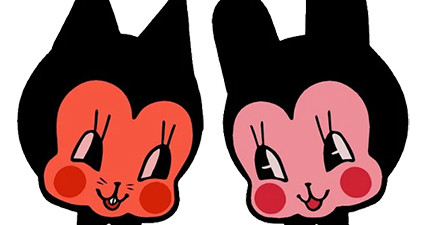Okay. Let me try to do this task of describing Capricornian outer perception. This isn’t such an easy task because Capricorn, being a Saturnian, is a sign that can only express itself through contradictions. Saturn is the most dual planet in astrology.
A Capricorn seems repressed but also seems really really horny (there’s a reason why I nickname the sign Capri-horny). They might express sadness and fall apart over things that they’ve actually processed but then pull themselves together to effectively manage the struggles that freak them out most in their current life. They might invite people in by delineating a strong immovable boundary. The strength with which they state that level of preference is what draws people in. They speak in a muted voice when they really want to be heard.
A Capricorn isn’t that easy to describe. Let me do so by highlighting the stories of two fictional sons: Jon Snow in Game of Thrones and Kendall Roy in Succession. Both characters are played by actors with Capricorn Suns.
In Game of Thrones, Jon Snow is maybe the prince who was promised. It’s flimsy because prophecies aren’t really taken seriously by the writer of the series and, so, there’s always reasonable doubt around prophetic validity. However, Jon Snow doesn’t want the throne and is pretty much one of the only royal characters to not strive towards power. The story is set up so that most people who read the books feel that he would be a good king but, at the last second, he kills the queen and is exiled. He cannot take the throne for this reason. He also loved the queen because she happened to be his wife-aunt and the killing of this woman was told as a sacrifice on his end.
Kendall Roy in Succession wants the CEO seat. His dad told him that he should be the successor when he was seven years old and this makes him entitled to the seat. He’s the sibling who works the most at the company and he suffers a lot under their abusive father. However, there is a hidden layer to Kendall’s power hunger. He doesn’t just want the CEO seat because he wants money or power. He knows that it’s a job that will kill him and he actually sees taking the position as him becoming the family scapegoat. When his siblings bully him or make him drink a disgusting smoothie, he’s very willing. He likes to accept this kind of attention, an attention that is about everyone mocking him for being the king. Then, the siblings do choose him to be the family martyr. That’s when we see him kick his shoes on the desk and lord it over everyone else.
These are both Capricornian stories.
In both of these stories, we do see self sacrifice. But is it really self sacrifice for the sake of ending one’s own existence and burning oneself out until there’s nothing left? No. It’s not. It’s about self sacrifice for the sake of power. The mocked king expresses humility but the mocked king is still the king.
This is very sexy. There’s something that’s just really sexy about someone who is mature enough to eat shit, to move through humiliation, to give up things they want and need for other people all without losing their integrity and backbone. Capricorn expresses itself through sacrifice. But how do other people see this? Well, it probably depends on your cultural context.
A Confucian might see Capricorn’s propensity through self martyrdom as dominance. Confucianism expects people to moderate themselves through sacrifice for the collective’s sake. A Christian might see Caprcorn’s self effacement and feel that it is either masochistic or moralistic. This is about right or wrong. Some people feel a sense of guilt when a Capricorn sacrifices too much in service to them.
So, Capricorn gets on its knees and finds power. That’s part of the oxymoron within Capricorn. The other paradox that lives in Capricorn is it doesn’t even really want power in the first place. The mocked king doesn’t want to be king.
Let me amend that one—Capricorn wants power when it doesn’t want power. Jon Snow didn’t want the throne and Kendall Roy only wanted the throne because he saw CEO as the worst possible and most emotionally dead thing he could become. There is a tendency in Capricorn to move enthusiastically towards pain and avoidantly from pleasure.
Maybe all I’m trying to say is that Capricorns tend to be kinky little fuckers and I’m trying too hard to wax poetic about all of that here. A Capricorn derives pleasure from pain. They like doing that and they don’t like to be kept away from doing that. You might see it as powerful or pathetic. A Capricorn can probably find enjoyment out of being called either.
The reason why Capricorn is such a weird one is because not one but both of the malefics do well here. Mars exalts and Saturn rules. Mars is that nasty planet who likes to push you past your limits and spank you. Saturn is the stoic one who likes to restrain you somewhere and leave you waiting. Both of these planets are well expressed in Capricorn.
Capricorns are weird animals. They’re the realists with wistful eyes. They’re the bartenders who don’t drink on the job but get wasted at home. Capricorns tease you with insinuated rejection because they want to see if you’re willing to rise up to the challenge of devouring them.
There’s always, always, always a lingering melancholia within Capricorn.
A Capricorn comes with a ready and practiced humility. “I’m not where I want to be in my practice yet.” “Everyday I am humbled by the people I serve.” “I love a tough woman who can put me in my place.” These are all Capricornian statements. They’re horny for humility. But if you think that Capricorns practice humility because they care about what you think then you’d be wrong. They don’t care about what you think. Capricorn is a sign that doesn’t care about being popular. Capricorn only practices humility when the practice of that humility gives them creative, transcendental, or erotic pleasure.
Sometimes, a Capricorn will seem very put together. Not always. Haruki Murakami, who writes his books according to a rigorous routine and makes all of his office assistants wear pantyhose because he cares about the appearance of neatness so dearly, is a Capricorn. So was Edgar Allen Poe. Edgar Allen Poe lived tormented by his words and perhaps Haruki Murakami feels tormented by them too.
There’s something that Winnicott writes about people who give birth but choose to give up the baby because of circumstances. Those who nurse the baby and then suffer through the turmoil of losing the baby are able to move on more effectively than those who never see the baby and do not suffer. Lyn Cowan writes that healing is the process of learning how to suffer through pain—not the process of eliminating pain when it arises. She writes that attempting to cure the body of pain would also be the attempt to rid the body of the soul of its voice.
The malefics teach us that there is a reaching towards life in pain. They show us that this connection to life is deeply erotic.
On the surface—and it's very hard to talk about the surface with Capricorn because Capricorns resist the crafting of a surface personality—Capricorns are the emos with weird hair and sad eyes. That’s what outsiders see. We see the sentimentality. Capricorns are incredibly sentimental. They wear their father’s old jewelry and tell stories about how their lives were upended by one Full Moon on a chilly November evening. From the outside, Capricorns almost seem like beasts who are trapped in cages made of the materiality, the scents and textures and sensations of the past.
Capricorns joke about the past. They wear the past on their skin as an old tattoo. They remember the old stories.
But this is what is happening on the inside—on the inside there is pleasure. This pleasure is the enjoyment of life. Masochism is actually a power trip and it is a spectacular one because it is such a very human one. Capricorns suffer because they are human and humans suffer and, when they suffer, they do not need you to eliminate their pain for them and nor do they need you to perceive them as helpless. Instead, they see their masochism as a deep engagement. They’re the mocked king, the dethroned king, and they understand themselves through their self enjoyment.
1 of 190
>>>


